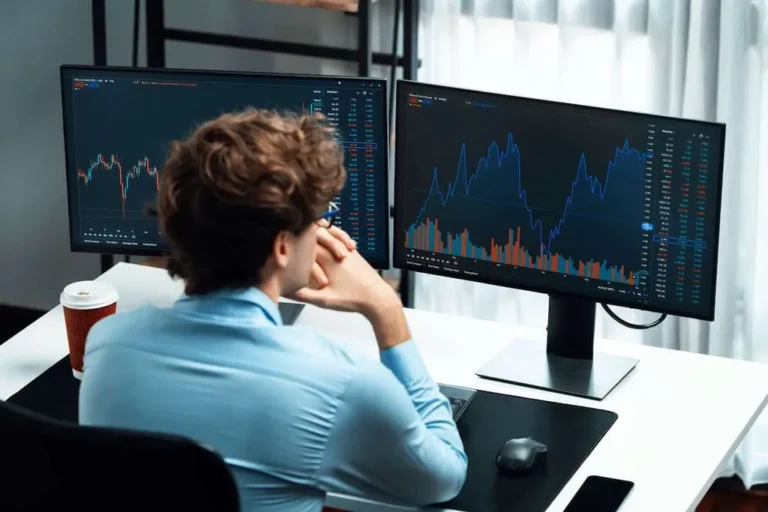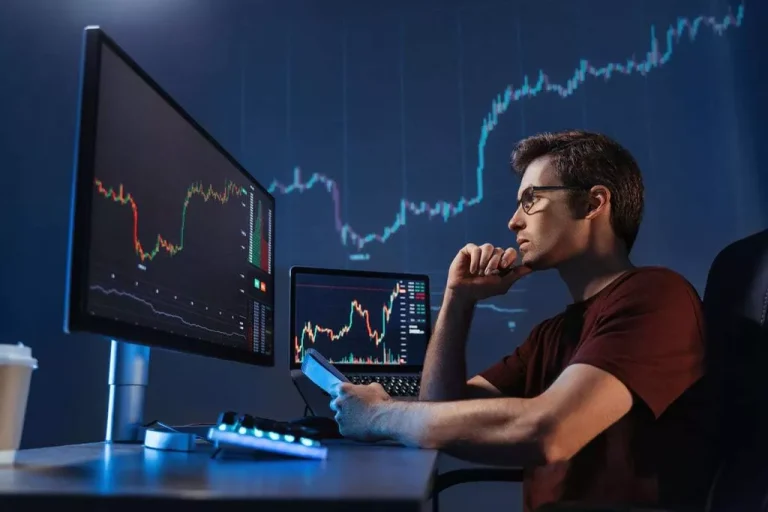Content
They buy securities https://www.xcritical.com/ at lower prices and aim to sell them at higher prices. Market maker plays a challenging role in SME IPO to inject liquidity in securities. They participate in the market all the trading days by buying securities from sellers and selling them to buyers. Market makers must be present for 75% of the trading time during a trading session.

What are the Roles of a Market Maker?
Market makers ensure that there is always a two-sided market with a reasonable spread for certain securities types of brokers in forex by posting bids and offers as often as necessary. According to data from securities trade association SIFMA, the average daily volume among U.S. stocks is 11.3 billion shares (as of July 2023). When you consider Bernoulli’s law of large numbers, those theoretical pennies and fractions of pennies become actualized over time, and they really add up. Market makers may not be the most transparent participants in the trade life cycle—they operate behind the scenes, using high-frequency algorithms and complex arbitrage strategies. They have a clear profit motive, but the result is (mostly) liquid and smooth-running markets. In fact, a market maker is often called a “liquidity provider,” as their job is to facilitate the flow of the market.
Why would market makers competitively improve prices?
On the LSE, there are official market makers for many securities. Some of the LSE’s member firms take on the obligation of always making a two-way price in each of the stocks in which they make markets. Decentralized finance Their prices are the ones displayed on the Stock Exchange Automated Quotation (SEAQ) system and it is they who generally deal with brokers buying or selling stock on behalf of clients.
How market makers improve the market
Following the rapid development of blockchain technology, more financial solutions have focused on decentralizing the financial system. Some top-ranking AMMs include Ethereum-based Uniswap, Sushiswap, Curve, and Balancer. Price discovery mechanisms are a key aspect of AMM protocols.
Conversely, when there are more sellers, they may lower their ask prices to attract buyers and prevent excessive price drops. Market makers continuously offer to buy and sell securities, creating liquidity in the market. By providing liquidity and reducing the bid-ask spread, market makers contribute to efficient and cost-effective trading for investors. They make it easier for investors to enter and exit positions without significantly impacting the security’s price.
Additionally, market makers can profit from their role as liquidity providers during periods of increased volatility for stocks. In the event that Apple shares continue to get bid higher after market open, the market maker may end up selling through much of their inventory to retail investors at steadily increasing prices. This is a useful market function, since few other traders want to sell ahead of the product launch, but a market maker has a duty to provide a bid and ask regardless of market conditions. A broker is a middleman who facilitates the buying and selling of securities for investors, usually on an exchange.
- „Market maker“ is the broad term used to describe the parties, whether firms or individuals, whose primary function is to keep markets running in a smooth and orderly manner.
- This guide explains the role of market making in modern trading.
- I want you to get to know who market makers are and how they work, as their presence and the functions they perform have a direct impact on how your future trades are carried out.
- Suddenly that UK stock may not look as attractive to buyers with a bid price of 199p.
- MMs move fast and can buy and sell in bulk ahead of everyone else.
They buy the shares from one party at a price, match the requirements of interested traders, and sell the shares to the most suitable individual or firm at another price. As a result, these players tend to make the market more efficient, more viable, and highly liquid. Market makers earn money on the bid-ask spread because they transact so much volume. So, if a market maker is buying shares on average for a few pennies less than it sells them for, with enough volume it generates a significant amount of income. A market maker is a firm or individual that stands ready to buy or sell a security. Investors may take the ability to buy and sell securities whenever they want for granted.
In this case, the merchant banker must appoint another market maker within one month for the mandatory market-making period of 3 years. As banks step back from some traditional roles, hedge funds and other non-bank entities are stepping forward as market makers, enhancing liquidity and market efficiency. Anyone who starts down the road to becoming a trader eventually comes across the statistic that 90 per cent of traders fail to make money when trading the stock market.

For example, earnings could come in lower than forecast, a common reason for a sharp increase in the number of sellers. Market makers are third parties that provide the means for people to buy or sell assets. Investors often use market makers and Electronic Communications Networks (ECNs) synonymously.
Specifically, they provide bids and offers for securities, along with the market size. Many market makers are brokerage houses that provide trading services for investors. They make markets in an effort to keep financial markets liquid. Yes, market makers hold a supply of securities so that they can readily facilitate the buying and selling of securities; in this way, they maintain liquidity in the market.
A Market Maker is a general term used to describe individuals or firms that facilitate trading by continuously quoting bid and ask prices for various securities. On the other hand, a Designated Market Maker (DMM) is a specific type of market maker with a specialized role on a particular stock exchange. Generally, market makers profit by charging higher ask prices (selling) than bid prices (buying). The spread compensates the market makers for the risk inherited in such trades which can be the price movement against the market makers‘ trading position. With the market-making individuals and entities functioning in the market, the sellers and buyers do not have to struggle in finding a buyer or seller for their securities. Whether traders show their interest in buying shares or selling them, they tend to support both.
Some examples of the bigger market makers in the industry include BNP Paribas, Deutsche Bank, Morgan Stanley, and UBS. When the demand for a security is low, and supply is high, the price of the security will be low. If the demand is high and supply is low, the price of the security will be high.
This is mainly because of the similarities that both these entities appear to share. However, they both are completely different in terms of who they are and how they function. The market makers strategy lies in the process they adopt and proceed with towards converting an illiquid market into a liquid one. Plus, the volume of shares on both sides of the market tends to be high.
A vast number of economic, industry, and company-specific factors are always competing at any one time to pull a UK stock’s bid-ask spread one way or another. The art of market making involves responding to this in a timely manner and displaying up-to-date prices. There is nothing stopping two parties from directly carrying out a trade.

Schreibe einen Kommentar